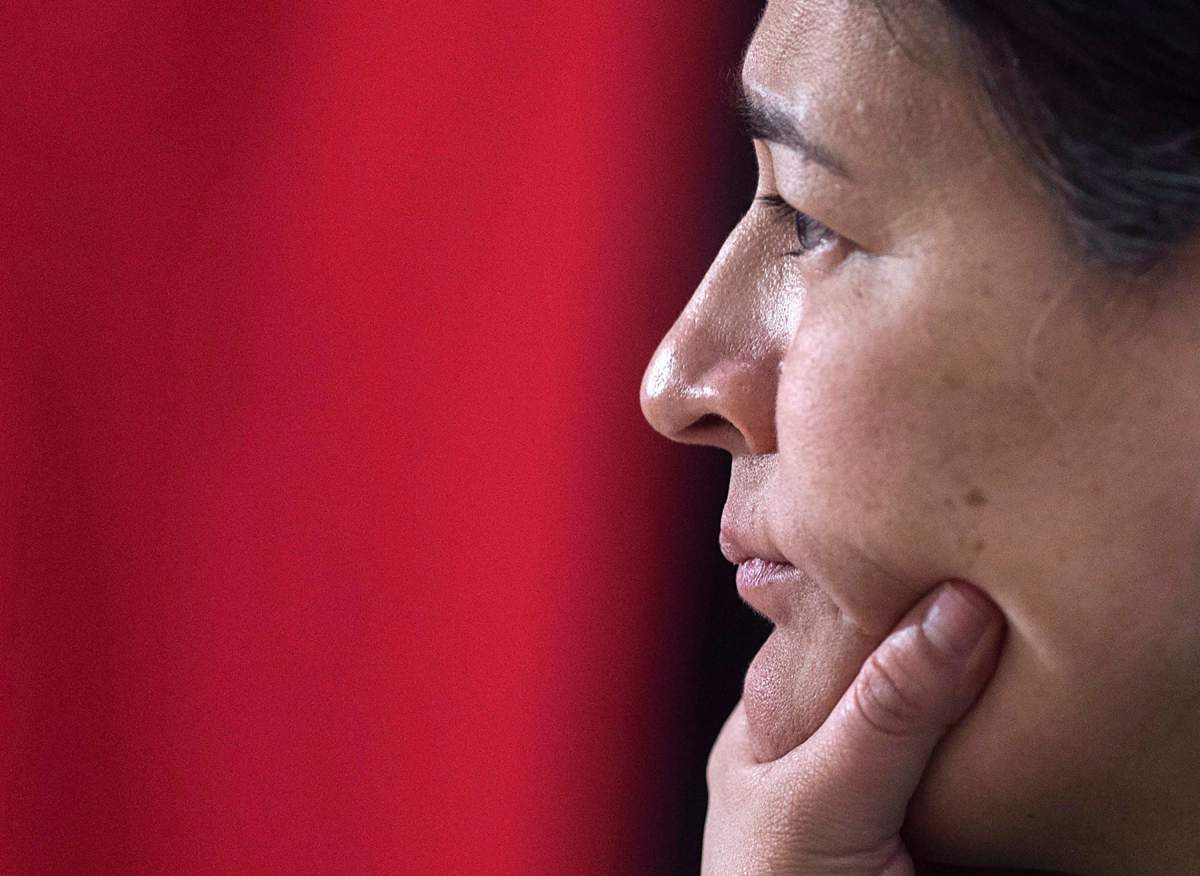An Indigenous Newfoundland woman whose mother was murdered in 2002 says she worries she will also become a statistic.

Amena Evans Harlick told her story to the National Inquiry into Missing and Murdered Indigenous Women and Girls during hearings Thursday in Happy Valley-Goose Bay.
Her mother, Mary Evans Harlick, was just 24 when she was strangled to death in 2002. Her body was put in a sleeping bag and left in a crawl space.
READ MORE: Inuit women should ‘take our communities back,’ MMIW inquiry told in Labrador
Harlick said she worries about the day when the man convicted of her mother’s second-degree murder is released.
“I don’t like feeling scared. I shouldn’t have to feel scared,” she said.
“When I get these feelings of being scared I feel like I’m going to be just another statistic. That’s something that worries me all the time because I don’t want to be another statistic,” Harlick said.
Another witness, Sylvia Murphy, told the inquiry how she and seven siblings were abandoned by their mother and sent to an orphanage that later closed.

Get daily National news
Murphy said they then found themselves in a series of foster homes where she said she and a sister were abused as young girls.
She said her sister was sexually assaulted on a regular basis and told not to tell anyone.
Murphy said they eventually went to police and gave statements but police said charges could not be laid.
“There has been no justice for us all this time. When that investigator came back and said, we cannot charge them, I felt my whole world fell,” she said.
WATCH: Inquiry into missing, murdered Indigenous women seeks 2 more years

Murphy also told the inquiry that the federal government is revoking her Indigenous status as a Mi’kmaq, claiming she doesn’t meet the requirements even though she has provided ancestry information.
The issue of women losing status has been a common story from women across the country as a result of changing circumstances including marrying a non-Indigenous man.
At the start of Thursday’s hearing, Johannes Lampe, president of Nunatsiavut Assembly, read a list of missing and murdered women from Labrador.
“It is my hope that the concerns of Labrador Inuit will be heard loud and clear by the inquiry commissioners and that those concerns will be given full consideration in the inquiry’s final report,” he said.
“In the end we all want justice. We all want the healing to begin. And we all want to move on with our lives.”
READ MORE: How the tragic death of Tina Fontaine helped spark the MMIWG inquiry
The federal government set up the inquiry in December 2015 to address the high number of missing and murdered Indigenous women and girls.
The inquiry began its work in September 2016 and have requested a two-year extension which would nearly double its original $54-million budget and push back the due date for its final report to December 2020.
So far, close to 800 witnesses have testified at nearly 250 hearings across the country.







Comments